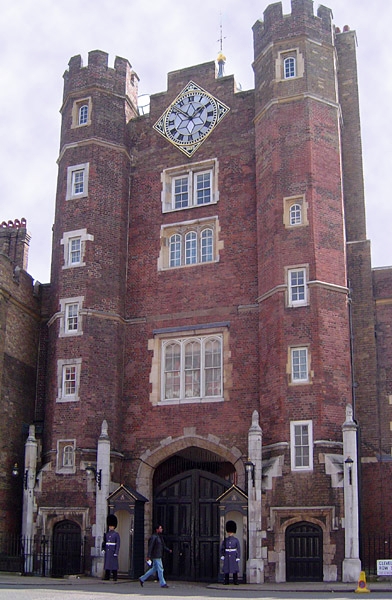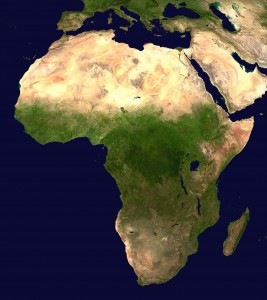In South Africa, the Duke of Edinburgh’s Award is known as the President’s Award for Youth Empowerment. Over the past three decades, approximately 110,000 youths have gotten involved in this programme, and in doing so, have not only discovered new talents, developed new skills and become more well-rounded individuals, but have also had an incredibly positive impact on their communities. In this article, we’ll be discussing some of the extraordinary accomplishments of the young South Africans who have completed the Award.
Those who visit South Africa regularly, such as Tunde Folawiyo, may know that it is a nation of economic extremes; although there are some extremely wealthy areas, the country also has very high rates of unemployment and poverty. Schalk Burger, a young student who was studying at a prestigious secondary school, was acutely aware of this problem, and after joining the President’s Award, he decided to do something about it. In 2010, he launched Clothing-4-Children, a garment recycling initiative.
He asked all of his fellow students to gather up any high quality, unwanted clothing they had lying around their homes.  The generous donations of his peers encouraged him to continue with this project, resulting in him teaming up with the Blue Bulls Rugby Union. This collaboration enabled Schalk and his brother to get 41 other schools around the country involved in Clothing-4-Children. To date, he has managed to collect more than 588 tonnes of clothes, which have an estimated value of $32.1 million.
The generous donations of his peers encouraged him to continue with this project, resulting in him teaming up with the Blue Bulls Rugby Union. This collaboration enabled Schalk and his brother to get 41 other schools around the country involved in Clothing-4-Children. To date, he has managed to collect more than 588 tonnes of clothes, which have an estimated value of $32.1 million.
Emily Mabasa is another participant with an inspiring story. As a physically disabled young person, completing the Award was very challenging at times; however, Emily’s involvement in this programme did wonders for her, helping her to uncover a love for activities such as creative writing, dancing and design.
The Service section had a particularly profound effect, and led to her working on setting up a skill centre, which will be aimed specifically at those living in poorer homes, where children are often expected to take on the role of head of the household. She hopes that this centre will be able to teach young people some practical skills, so that as they grow up, they won’t be reliant on government handouts to survive.
Tunde Folawiyo, and anyone else who is familiar with the Award, will probably understand just how many opportunities it provides participants with. Her involvement in the President’s Award has opened up a great many doors for Emily; for instance, during Youth Month Commemoration, she and three other participants were invited to an event called ‘Youth of South Africa – Legends of the Future and History Makers’. This year, Emily will also be travelling to South Korea, to serve as a representative of the Award at the International Gold Event.
Anyone who, like Folawiyo, is interested youth development initiatives like the President’s Award, and would like to learn more about this subject, should follow Tunde Folawiyo projects online.

 Those who are
Those who are ![By Tognopop (Own work) [Public domain], via Wikimedia Commons Tunde Folawiyo](http://upload.wikimedia.org/wikipedia/commons/thumb/e/e4/London_City_Hall_-_20090804.jpg/512px-London_City_Hall_-_20090804.jpg) The President of Ireland, Michael D Higgins, recently visited a group of young people from across Ireland and the UK at an event held at London’s City Hall. With the future support of President Higgins and others like
The President of Ireland, Michael D Higgins, recently visited a group of young people from across Ireland and the UK at an event held at London’s City Hall. With the future support of President Higgins and others like  A Munro is defined as a mountain in Scotland boasting a height of over 3,000 ft. These were named for Sir Hugh Munro, who compiled the first list of these hills – Munros Tables – during 1891. Today, the most widely-recognised of the Munros is Ben Nevis, the British Isles’ highest mountain. Climbing Scotland’s Munros is a thrilling experience not to be missed.
A Munro is defined as a mountain in Scotland boasting a height of over 3,000 ft. These were named for Sir Hugh Munro, who compiled the first list of these hills – Munros Tables – during 1891. Today, the most widely-recognised of the Munros is Ben Nevis, the British Isles’ highest mountain. Climbing Scotland’s Munros is a thrilling experience not to be missed. Partnered with the UK’s Dallaglio Foundation, the Duke of Edinburgh Award welcomes Bristol Rugby Club as the first to offer the prestigious DofE to its young players. At a presentation at London’s Saint James’s Palace, DofE CEO Peter Westgarth and Paula Robertson, the Head of Programmes for the for the Dallaglio Foundation, presented the DofE license to several representatives in attendance including Bright Sparks Programme Manager Craig Capel, Bristol Rugby and CEO Ben Breeze along with Bristol Rugby Community Foundation. Tunde Folawiyo and other supporters of the DofE may be pleased with the announcement and its impact on the growth of the programme.
Partnered with the UK’s Dallaglio Foundation, the Duke of Edinburgh Award welcomes Bristol Rugby Club as the first to offer the prestigious DofE to its young players. At a presentation at London’s Saint James’s Palace, DofE CEO Peter Westgarth and Paula Robertson, the Head of Programmes for the for the Dallaglio Foundation, presented the DofE license to several representatives in attendance including Bright Sparks Programme Manager Craig Capel, Bristol Rugby and CEO Ben Breeze along with Bristol Rugby Community Foundation. Tunde Folawiyo and other supporters of the DofE may be pleased with the announcement and its impact on the growth of the programme.![By Paul Wordingham [CC-BY-2.0 (http://creativecommons.org/licenses/by/2.0)], via Wikimedia Commons Tunde Folawiyo](http://upload.wikimedia.org/wikipedia/commons/thumb/0/0f/Clay_shooting_with_semi_auto_shotgun.jpg/512px-Clay_shooting_with_semi_auto_shotgun.jpg) The DofE is currently the only charity granted permission to hold a shoot at the Great Park by HRH The Duke of Edinburgh. Regardless of shooting experience, students, clients, colleagues and friends are all invited to participate in the day’s thrilling events. The day will begin with breakfast, followed by a shooting competition. A three course lunch will follow, after which an award ceremony honouring the day’s winning teams will take place. Additionally, there will be an auction to raise money for the DofE.
The DofE is currently the only charity granted permission to hold a shoot at the Great Park by HRH The Duke of Edinburgh. Regardless of shooting experience, students, clients, colleagues and friends are all invited to participate in the day’s thrilling events. The day will begin with breakfast, followed by a shooting competition. A three course lunch will follow, after which an award ceremony honouring the day’s winning teams will take place. Additionally, there will be an auction to raise money for the DofE.
![By Kardapoltsevvd (Own work) [CC-BY-SA-3.0 (http://creativecommons.org/licenses/by-sa/3.0) or GFDL (http://www.gnu.org/copyleft/fdl.html)], via Wikimedia Commons Tunde Folawiyo](http://upload.wikimedia.org/wikipedia/commons/8/82/SVS_CCF.jpg)
![By Martin23230 (Own work) [CC-BY-SA-3.0 (http://creativecommons.org/licenses/by-sa/3.0) or GFDL (http://www.gnu.org/copyleft/fdl.html)], via Wikimedia Commons Tunde Folawiyo](http://upload.wikimedia.org/wikipedia/commons/thumb/8/86/Africa_%28orthographic_projection%29.svg/512px-Africa_%28orthographic_projection%29.svg.png) difficulties in their lives, and discover their talents and abilities. Here, we’ll be discussing the experiences of two youths from Kenya and South Africa, whose involvement in the D of E helped them to flourish, in spite of the challenging circumstances in which they grew up.
difficulties in their lives, and discover their talents and abilities. Here, we’ll be discussing the experiences of two youths from Kenya and South Africa, whose involvement in the D of E helped them to flourish, in spite of the challenging circumstances in which they grew up.![By StateOfOrigin-coloured-locator.svg: Sémhur Flag_of_Queensland.svg: derivative work: Fry1989 eh? 22:21, 25 October 2011 (UTC) [CC-BY-SA-3.0 (http://creativecommons.org/licenses/by-sa/3.0)], via Wikimedia Commons Tunde Folawiyo](http://upload.wikimedia.org/wikipedia/commons/thumb/4/46/Flag-map_of_Queensland.svg/256px-Flag-map_of_Queensland.svg.png)